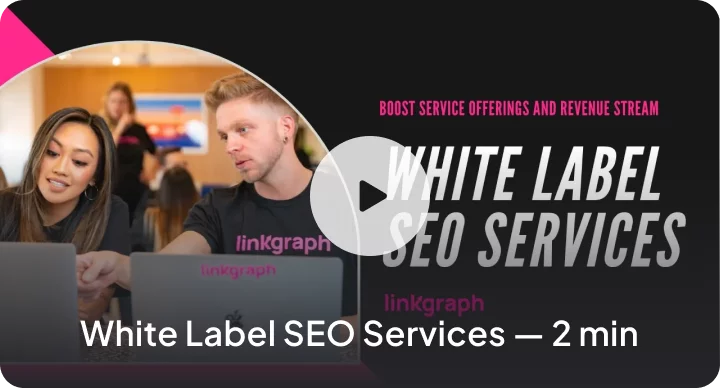10 Digital Marketing Tools to Help you Earn More Customers
These 10 Digital Marketing Tools Will Help You Crush your Goals in 2022 What Are Digital Marketing Tools? Digital marketing tools are technologies that can be used […]
These 10 Digital Marketing Tools Will Help You Crush your Goals in 2022
What Are Digital Marketing Tools?
Digital marketing tools are technologies that can be used to help you market your business online. There are many different types of digital marketing tools, and each has its own unique set of features and benefits.
No matter what type of business you have, there are sure to be digital marketing tools that can help you reach your goals. It’s important to research the options and find the tools that will work best for you and your company.
Digital Marketing Tools and AI
Digital marketing tools are growing more and more sophisticated as artificial intelligence (AI) continues to develop. While digital marketing tools have always been able to automate certain tasks, such as email marketing and A/B testing, AI is now making it possible for them to do much more.
Overall, the use of AI by digital marketing tools is revolutionizing the way that businesses market their products and services. By providing businesses with more accurate data and more personalized customer experiences, AI is helping digital marketing tools to become more effective and more efficient.
As a result, businesses are able to achieve a better return on investment for their marketing campaigns and are able to build stronger customer relationships.
Top 10 Digital Tools for Marketers
1. AI-powered chatbots
The AI-powered chatbot is a computer program that can mimic human conversation. Powered by artificial intelligence (AI), these chatbots can understand natural language, carry on a conversation, and even learn over time.
The potential for chatbots is huge. They can be used for anything from customer service to sales to marketing. And they’re not just for big businesses, either. Chatbots can be used by small businesses, too.
One of the best things about chatbots is that they’re always available. You can access them 24/7, 365 days a year. They never take a break, and they never complain about the weather.
Plus, chatbots are cost effective. You don’t need to hire a human to chat with your customers. The chatbot can do it all.
Types of AI-powered chatbots
There are many different types of chatbots. Here are some of the most popular ones:
1. Rule-based chatbots
Rule-based chatbots are the simplest type of chatbot. They use a set of rules to determine how to respond to a particular question. If the chatbot can’t find a rule that matches the question, it will respond with a generic message.
2. AI-powered chatbots
AI-powered chatbots are more complex than rule-based chatbots. They use artificial intelligence to understand natural language and carry on a conversation. They can also learn over time, so they get better and better at understanding and responding to questions.
3. Scripted chatbots
Scripted chatbots are similar to rule-based chatbots, but they use scripted responses instead of rules. This makes them more flexible, but also more complex to build.
4. Retrieval-based chatbots
Retrieval-based chatbots use a database of questions and answers to respond to queries. This is the simplest type of chatbot to build, but it can be limited in its functionality.
5. Hybrid chatbots
Hybrid chatbots use a combination of rule-based, AI-powered, and scripted chatbots. This gives them the best of all worlds – the flexibility of scripted chatbots, the intelligence of AI-powered chatbots, and the simplicity of rule-based chatbots.
Benefits of Using Chat Bots on your Website
Now that you know about the different types of chatbots, let’s take a look at some of the benefits of using them:
- Increased customer satisfaction: Chatbots can increase customer satisfaction by providing a quick and easy way to get help. They can also reduce customer support costs by automating simple tasks.
- More sales: Chatbots can increase sales by automating sales processes and providing personalized recommendations.
- Increased productivity: Chatbots can increase productivity by automating tasks and providing information and guidance.
- More engagement: Chatbots can increase engagement by providing an interactive experience that is fun and engaging.
- Increased retention: Chatbots can increase retention by providing a personalized experience that keeps customers coming back.
- Improved customer insights: Chatbots can provide customer insights by collecting data about customer interactions. This data can be used to improve customer service and marketing efforts.
- Reduced costs: Chatbots can reduce costs by automating simple tasks and providing information and guidance.
2. Marketing automation tools
In order to make the most of your marketing efforts, you need to use the right tools. Marketing automation tools can help you streamline your work and achieve better results.
There are many different marketing automation tools available, so it can be difficult to decide which one is right for you. Here are some of the most popular tools:
- Marketo: Marketo is a marketing automation tool that helps you create and execute marketing campaigns. It also provides you with data analytics so you can track your progress and evaluate your results.
- Pardot: Pardot is a marketing automation tool that helps you create and execute marketing campaigns. It also provides you with data analytics so you can track your progress and evaluate your results.
- Keap: Keap is a marketing automation tool that helps you manage your sales and marketing activities. It also provides you with data analytics so you can track your progress and evaluate your results.
3. Social media management tools
As social media becomes an increasingly important part of online marketing, businesses are looking for ways to streamline their social media management. There are a number of different tools available to help businesses manage their social media accounts, ranging from free tools to paid tools.
The most popular free tool for social media management is Hootsuite.
Hootsuite allows businesses to manage up to three social media accounts for free, and offers a wide range of features, including the ability to schedule posts, track mentions, and analyze social media analytics.
Another popular free tool is Sprout Social.
Sprout Social offers a number of features, including the ability to schedule posts, track keywords, and measure engagement. Sprout Social also offers a limited free plan, which allows businesses to manage three social media accounts.
If businesses need more than three social media accounts, they will need to upgrade to a paid plan. Paid social media management tools vary in price, but most offer a range of features, including the ability to schedule posts, track keywords, measure engagement, and analyze social media analytics.
Some of the most popular paid social media management tools include Hootsuite Pro, Sprout Social, Buffer, and SocialBee.
4. Influencer marketing platforms
There are a number of influencer marketing platforms available, each with their own strengths and weaknesses. A few of the most popular platforms are described below.
- FameBit: FameBit is a free platform that connects brands with YouTube personalities. Brands can search for influencers based on demographics, interests, and channels. Influencers can then submit proposals, including a price and a description of the proposed campaign. FameBit also offers a variety of tools to help measure the effectiveness of campaigns.
- IZEA: IZEA is a platform that connects brands with social media influencers. Brands can search for influencers based on demographics, interests, and social media reach. Influencers can then submit proposals, including a price and a description of the proposed campaign. IZEA also offers a variety of tools to help measure the effectiveness of campaigns.
- Influenster: Influenster is a free platform that connects brands with social media influencers. Brands can search for influencers based on demographics, interests, and social media reach. Influencers can then submit proposals, including a price and a description of the proposed campaign. Influenster also offers a variety of tools to help measure the effectiveness of campaigns.
- TapInfluence: TapInfluence is a platform that connects brands with social media influencers. Brands can search for influencers based on demographics, interests, and social media reach. Influencers can then submit proposals, including a price and a description of the proposed campaign. TapInfluence also offers a variety of tools to help measure the effectiveness of campaigns.
5. SEO Tools
SEO is one of the most important aspects of any website. It can be the difference between a website that is successful and one that is not. There are a number of different SEO tools that can help you improve your website’s ranking.
Here are some of our favorites.
SearchAtlas
The most comprehensive SEO software suite on the market, SearchAtlas is ideal for helping digital marketers show up in search results.
Some of the SEO tasks you can accomplish in SearchAtlas include:
- Optimize Blog posts
- Keyword research
- SEO project management
- Link Building suggestions
- Create an SEO content calendar
- Manage content writers
- Multiply content creation with AI integrations
- SEO competitive Analysis
- And more!
Other popular tools SEO tools
- Google Analytics: Google Analytics is a free tool that allows you to track your website’s traffic. You can see where your traffic is coming from, how long they are staying on your site, and what pages they are visiting. This information can help you improve your website’s SEO.
- Yoast SEO plugin: Yoast SEO is a free plugin for WordPress websites. It allows you to optimize your website for SEO. You can add your target keyword to your website’s title and description, and Yoast SEO will help you to make sure that your website is optimized for that keyword.
- Google Search Console: Track SEO KPIs for your marketing campaigns in this free tool from Google. No other SEO tool has as comprehensive of an SEO dataset (except for SearchAtlas’
- GSC Insights: — Built on top of Google Search Console data, GSC Insights is the most comprehensive keyword tracking tool available anywhere.
SEO is an important part of any website. These are just a few of the many SEO tools that are available. To learn more about SEO, and to find the best SEO tools for your website, schedule a software demo with the LInkGraph team.
6. Email marketing tools
There are a number of email marketing tools available, both free and paid. Some of the most popular ones include:
- AWeber: A popular, well-known tool that many small businesses start with. It’s affordable and has a lot of features, including automation and a wide range of templates.
- Constant Contact: Also a popular choice, Constant Contact is known for its ease of use. It has a wide range of features, including automation, as well as a wide range of integrations.
- MailChimp: MailChimp is a free tool that is popular with small businesses. It has a wide range of features, including automation and a wide range of templates. However, it does have some limitations on the number of subscribers you can have.
- GetResponse: GetResponse is a popular paid tool that has a lot of features, including automation and a wide range of templates. It’s also very affordable.
All of these tools have their own strengths and weaknesses, so it’s important to do your research before deciding which one is right for you.
7. Content marketing tools
There are a number of different content marketing tools that you can use to help you with your efforts. Some of the most popular ones include:
- Blogging platforms like WordPress or Tumblr
- Social media platforms like Facebook, Twitter, and LinkedIn
- Graphic design tools like Adobe Photoshop or Inkscape
- Video creation tools like Adobe Premiere or iMovie
You’ll need to figure out which digital tools work best for you or your team. For example, if you’re not very good at graphic design, then you’ll probably want to stick with a platform like WordPress that has a lot of pre-made templates and designs.
On the other hand, if you’re good at graphic design and want more control over the look and feel of your content, then you’ll want to use a tool like Adobe Photoshop. The key is to experiment with different tools and find out which ones work best for you.
Measuring the success of your content marketing
One of the most important aspects of content marketing is measuring the success of your efforts. This can be done in a number of different ways, but the most common way is to look at the number of website visitors that you’re getting from your content.
Another way to measure the success of your content is to look at the number of leads that you’re getting from your content. This can be done by setting up a lead capture form on your website and tracking the number of leads that are coming from your content.
Finally, you can also measure the success of your content by looking at the number of sales that you’re getting from your content. This can be done by setting up a sales funnel and tracking the number of sales that are coming from your content.
No matter which way you choose to measure the success of your content, it’s important to track your progress over time so that you can see how your content is affecting your business.
8. CRM tools
There are many CRM (Customer Relationship Management) tools on the market, and it can be hard to determine which is the best for your business.
Here are some of the most popular CRM tools, along with a brief description of each:
- Salesforce is one of the most popular CRM tools, and it is widely used by businesses of all sizes. It is a cloud-based CRM tool that provides a variety of features, such as lead management, contact management, customer support, and sales tracking.
- HubSpot is another popular CRM tool, and it is also cloud-based. It provides a variety of features, such as contact management, email marketing, lead management, and sales tracking.
- Microsoft Dynamics is a popular CRM tool for businesses that are using Microsoft Office. It provides a variety of features, such as contact management, lead management, sales tracking, and project management.
- Zoho CRM is a popular CRM tool that is cloud-based and provides a variety of features, such as contact management, lead management, sales tracking, and customer support.
If you are looking for a CRM tool that is specific to your industry, there are many options available. For example, if you are in the real estate industry, there are CRM tools specifically for real estate agents. If you are in the insurance industry, there are CRM tools specifically for insurance agents.
9. Web analytics tools
Web analytics tools are used to track and measure website traffic. This information can be used to improve website design, content, and marketing strategies. There are a variety of web analytics tools available, each with its own strengths and weaknesses.
10. Paid advertising platforms
There are a number of paid advertising platforms available to help you reach your target market. When considering which platform is best for your business, it’s important to consider the cost, the audience you’re trying to reach, and the features of the platform.
Google Adwords
Google AdWords is a paid advertising platform that allows businesses to place ads on Google.com and millions of other websites across the web. AdWords allows you to target your ads to people based on what they’ve searched for on Google, where they are, and what type of device they are using.
Facebook Ads
Facebook Ads is a paid advertising platform that allows businesses to place ads on Facebook.com. Facebook Ads allows you to target your ads to people based on their interests, demographics, and behaviors.
LinkedIn Ads
LinkedIn Ads is a paid advertising platform that allows businesses to place ads on LinkedIn. LinkedIn Ads allows you to target your ads to people based on their job title, company size, or other factors.
Popular Articles
Want access to the leading SEO software suite on the market?
See why the world's best companies choose LinkGraph to drive leads, traffic and revenue.
“They are dedicated to our success and are a thoughtful sounding board when we run ideas by them - sometimes on ideas and projects that are tangential to our main SEO project with them. Also, I love that they allow for shorter-term contracts compared to the usual 1-year contract with other SEO companies. Lastly, they deliver on their promises.”





Enter your website URL and we’ll give you a personalized step-by-step action plan showing what exactly you need to do to get more traffic.
- Better tools
- Bigger data
- Smarter SEO Insights
Real-time SEO Auditing & Issue Detection
Get detailed recommendations for on-page, off-site, and technical optimizations.
























































